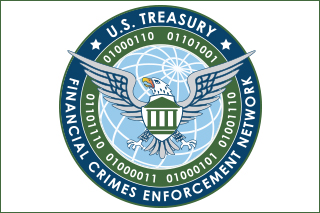
The Corporate Transparency Act (CTA), aimed at combating illicit financial activities, recently faced a significant legal challenge from a federal District Court in Alabama, which determined that the CTA is unconstitutional, but the decision only applies to the plaintiffs in that lawsuit. While the recent ruling casts uncertainty on the CTA’s future as the Alabama decision and other court rulings work their way through the courts, small businesses must continue navigating this landscape with an informed strategy, including assessing whether they are required to file a beneficial ownership disclosure with the Financial Crimes Enforcement Network (FinCEN) by the applicable deadlines in 2024. Applicable business entities formed prior to January 1, 2024 have until January 1, 2025 to file the requisite report with FinCEN. Entities formed after December 31, 2023 must file the FinCEN disclosure within 90 days of formation.
Understanding the CTA
The CTA was introduced to enhance transparency within the corporate sector, requiring U.S. and foreign entities which are not exempt under the CTA to report beneficial ownership information to FinCEN on an ongoing basis. The CTA’s goal is to deter and detect financial crimes such as money laundering and terrorism financing by shedding light on the true owners of businesses.
Notably, the CTA outlines 23 exemptions from the reporting requirement in order to mitigate the reporting burden on entities less likely to be used for illicit purposes and/or already regulated by other statutes. These exemptions cover a range of entities already under certain regulatory scopes, such as businesses with more than 20 employees, public utilities, banks, and insurance companies, aiming to streamline compliance requirements without duplicating existing regulations.
Most Small Businesses With < 21 Employees Not Exempt
One exemption that is particularly pertinent to small businesses is for “Large Operating Companies.” This exemption is designed for entities that meet specific criteria, reflecting their lower risk of being exploited for illegal activities due to their established business presence, existing transparency requirements and more formalized management. To qualify for this exemption, a company must:
1. Employ more than 20 full-time employees in the United States.
2. Maintain an operating presence at a physical office within the U.S.
3. Report over $5 million in gross receipts or sales, net of returns and allowances, with these figures drawn from the previous year’s federal income tax or information return.
This “Large Business” exemption recognizes that such companies typically engage in ordinary business activities and possess a level of transparency that aligns with the CTA’s objectives. If your business falls within this category, it is nevertheless crucial to maintain accurate records and documentation to substantiate your exemption status should it ever be questioned.
The Alabama Decision and Its Implications
The Alabama District Court’s ruling declared the CTA unconstitutional, primarily questioning Congress’s authority to enact such legislation. However, this decision currently applies only to the plaintiffs involved in that lawsuit. FinCEN has indicated it will pause enforcement against those parties, but it will continue to apply the law to all other applicable entities. In this context, it’s essential for small businesses to continue complying with the CTA’s reporting obligations while staying vigilant to legal developments regarding the Alabama case and others like it, which will likely meander through the court system (such as appeals) for the foreseeable future. Small businesses should be aware of these developments and check on compliance requirements regularly. Currently, the CTA requires applicable entities to file the requisite report once initially in 2024 and thereafter under certain circumstances such as a change in beneficial ownership.
Action Items for Small Businesses
Small businesses should first determine whether they fall under the CTA’s scope or qualify for any of the 23 exemptions. If your business meets the criteria for the “Large Operating Company” exemption or any other, ensure that you have thorough documentation to support this status. Moreover, exempt entities should continue to monitor the legal developments surrounding the CTA and cases like the Alabama decision which may nullify the CTA in the foreseeable future.
For businesses not exempted under the CTA, the statute mandates fairly immediate deadlines for applicable businesses to file the requisite beneficial ownership information report with FinCen. For non-exempt business entities that were formed before January 1, 2024, the deadline to file the first annual beneficial ownership disclosure report is January 1, 2025. For non-exempt entities that were formed on or after January 1, 2024, beneficial ownership information is to be reported to the FinCEN within the 90-day window following the entity’s formation. Entities formed on or after January 1, 2025 must file the disclosure report within 30 days of formation.
Conclusion
While the CTA’s legal challenges unfold, the importance of maintaining transparent and ethical business practices remains. Keep abreast of the evolving situation, consult with legal advisors, and prepare your business to navigate the complexities of the CTA. At the Law Office of Isaac H. Winer, we stand ready to assist with all of your CTA compliance requirements.
